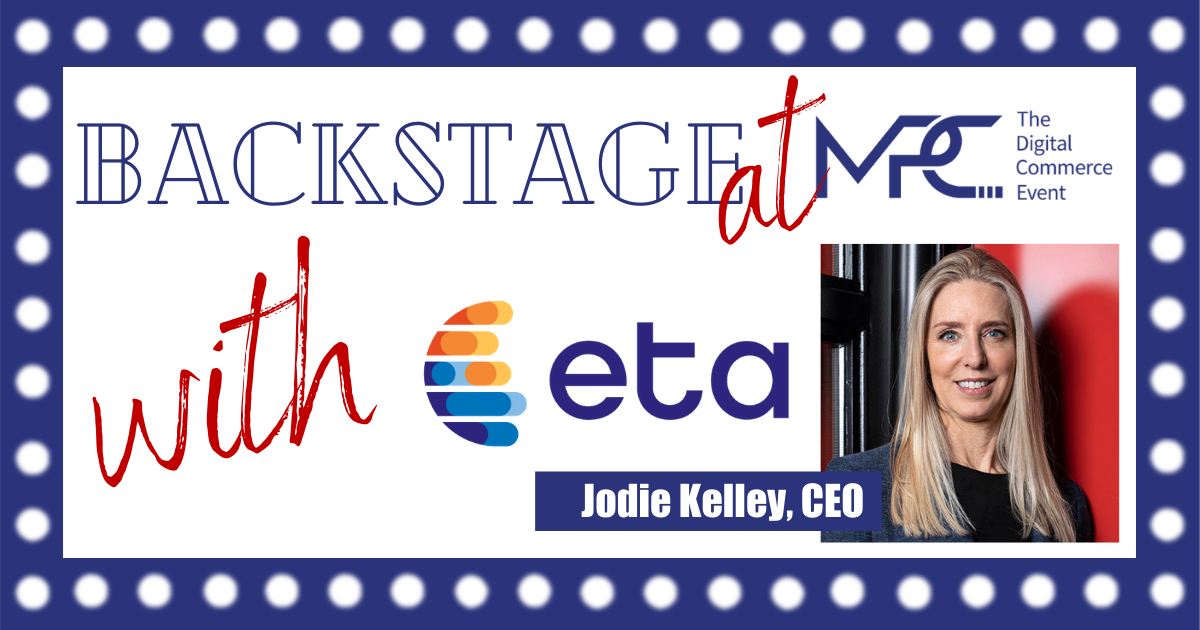There are so many touchpoints in your white paper, How FinTech is Addressing the Financial Needs of the Underserved, that illustrate the many different ways in which payments industry stakeholders help underserved individuals and communities. These initiatives have drawn broad support and are expected to continue post-COVID.
Q1>How do these ETA member initiatives reflect the ETA’s purpose and guiding principles?
As the leading organization representing the digital transactions industry, ETA strives to shape and support the industry by providing leadership through education, advocacy, and the exchange of information. ETA and its members support an inclusive financial system that provides high-quality, secure, and affordable financial services for the broadest possible set of consumers. Our members are at the forefront of using technology to broaden financial inclusion for underserved consumers, through prepaid products, mobile payments, P2P services, e-cash solutions, and more. Because of these innovations, consumers, including those of low and moderate incomes, already have access to many no-cost and low-cost financial services that are evolving to meet their daily financial needs.
Thanks to the proliferation of such financial-service technologies as mobile wallets and peer-to-peer and e-cash payments, especially during the COVID-19 pandemic, banks and other financial technology providers have closed the gap on underserved consumers’ access to financial services. Providing underserved consumers with access to financial services technologies has eliminated banking deserts by providing a convenient way for all consumers to receive, hold, and spend their funds in a secure manner.
Q2> How has the ETA’s increasingly global and diverse membership of fintechs, technology companies and payments industry stakeholders helped the association evolve to meet the needs of all communities across the ever-changing commerce ecosystem?
ETA is the leading voice of payments technology because of the strength and diversity of its membership. We represent every aspect of the payments ecosystem: POS hardware providers, integrated software vendors, the merchant services side of banks, fintechs, payment facilitators, card brands, processors, and more. Our members’ differences enable us to be stronger, driving innovation and producing a more positive experience for consumers. In fact, the industry’s latest wave of innovation has been a real game-changer for American consumers, bringing new products, processes, and services designed for even safer, even more efficient transactions.
To achieve diversity, equity, and inclusion (DE&I), ETA and its members stand together, as an industry, in taking meaningful steps to address racial inequalities and provide economic opportunities for women and traditionally underrepresented groups – not only through our member companies’ products and services, but also in our collective commitment to advancing real and sustainable changes. The industry is working to address systemic racism and inequality by instituting changes that ensure that all Americans – regardless of race, color, income, or place of residence – have access to digital financial products and services. By providing a range of new products and services to serve Americans of all income levels, the industry offers fast, secure, ubiquitous, and inexpensive options for all Americans to conduct their banking needs. Digitization of the industry is increasing financial inclusion.
Q3>How does the ETA work with other industry trade associations to unify the industry and drive financial services best practices and inclusion?
ETA regularly joins forces with sister trade organizations to advance good public policy to strengthen the payments industry’s goal of achieving diversity, equity, and inclusion. We share best practices and work together to help implement them.
Q4>What opportunities does the ETA offer to payments industry professionals who would like to become more active in the organization?
As the leading fintech and payments trade association, ETA offers many ways for professionals to get involved, no matter their level or specialty or role within the payments ecosystem. Through its Industry Affairs, Education, and Government Relations departments, ETA hosts numerous committees, educational opportunities, and outward-facing events where industry experts and SMEs convene to engage in thought leadership, further their education, and advocate for the industry. Those who participate in ETA committees and attend our events position themselves as thought leaders, increase visibility for their companies, and contribute to building the knowledge and thought leadership of the payments ecosystem.
The ETA Certified Payments Professional (CPP) program sets the standard for professional performance in the payments industry, signifying that an individual had demonstrated the knowledge and skills required to perform competently in today’s complex electronic payments environment. The ETA CPP is for all payments professionals with 1-3+ years of industry sales experience, functional specialists, and even seasoned professionals seeking to demonstrate their existing knowledge.
For those newer to the field, ETA hosts a competitive yearlong Young Payments Professionals program that pairs early-career payments professionals with executive leadership across ETA membership.
ETA’s annual trade show, TRANSACT, provides a great opportunity for industry professionals to network and become more active in the organization. We are on track to host TRANSACT in April 2022 in person.
Q5>How can individuals and organizations participate in these initiatives and participate in the betterment of underserved communities?
As a whole, the digital payments industry promotes financial inclusion, diversity, and access for all Americans, regardless of circumstance. The industry is working to address systemic racism and inequality by instituting changes that ensure that all Americans – regardless of race, color, income, or place of residence – have access to digital financial products and services.
In addition to providing a variety of digital payment products and services available to Americans regardless of income, ETA members have also committed tens of billions of dollars to tackle racial inequities, provide economic opportunity, and better reach underserved communities. ETA members are actively expanding their commitment to diversity, equity, and inclusion, announcing truly significant initiatives and programs for underserved communities.
[mkdf_separator class_name=”” type=”normal” position=”center” color=”” border_style=”” width=”” thickness=”” top_margin=”” bottom_margin=””]
Q6>Is there anything that you would like to add about this whitepaper and ETA?
As the leading trade association for the digital transactions industry, ETA encourages policymakers to support financial inclusion efforts through policies that encourage innovation and the use of technology to improve financial outcomes for all consumers.
[mkdf_separator class_name=”” type=”normal” position=”center” color=”” border_style=”” width=”” thickness=”” top_margin=”” bottom_margin=””]
About ETA
ETA represents more than 500 companies, which span the breadth of the payments technology ecosystem. ETA members include payment processors, financial institutions, payment networks, independent sales organizations, providers of mobile payments products and services, software providers and hardware suppliers. From the world’s largest payments trade show to the most widely read industry publications and online communities, ETA is the hub of payments.
[mkdf_separator class_name=”” type=”normal” position=”center” color=”” border_style=”” width=”” thickness=”” top_margin=”” bottom_margin=””]

Jodie Kelley
Kelley brings to ETA over 25 years of experience managing and providing strategic guidance to large organizations. At ETA, she has extensive responsibility for strategic, operational, legal and financial issues. As ETA’s Senior Vice President and General Counsel, she oversees the primary revenue generating activities for the organization, manages programs that support the software industry in more than 30 countries and acts as spokesperson for ETA and the business software industry in front of a wide variety of audiences.
Prior to joining ETA, Kelley served for six years as Vice President and Deputy General Counsel of Fannie Mae, a government-sponsored enterprise that helps provide liquidity, stability and affordability to the U.S. housing and mortgage markets. She was responsible for litigation management and advised the CEO, board of directors and business units on a wide range of issues. Before joining Fannie Mae, Kelley was a partner at Jenner & Block in Washington, D.C., where she managed teams of attorneys and paralegals and represented clients in litigation and before regulatory agencies.







